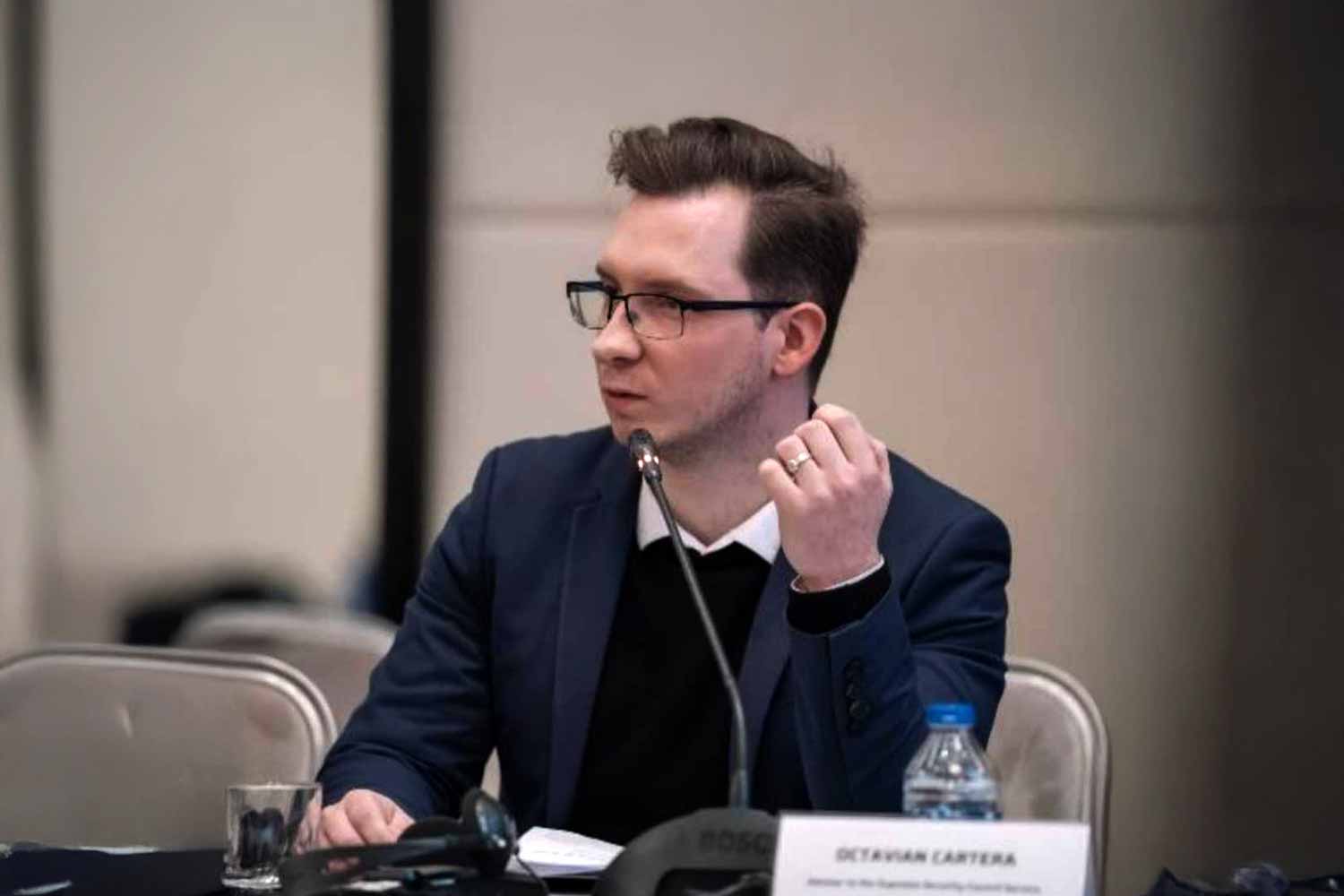Romania’s Election Implications
Success of pro-European candidate could help stabilise the “fragile political landscape” in neighbouring Moldova.
The pro-European mayor of Bucharest, Nicuşor Dan, won Romania’s presidential elections this week, beating his far-right opposition candidate George Simion. Octavian Cartera, manager of IWPR’s Independent Countering Disinformation Centre (ICDC) in neighbouring Moldova, explains the pivotal regional importance of these elections, as pro-European forces face off with political forces in Russia’s orbit.
IWPR: What was at stake for Moldova in these elections?
Octavian Cartera: Had George Simion won the presidential elections in Romania, it likely would have introduced ideological friction with Moldova. From the Moldovan perspective, Romania is broadly viewed as its most consistent and committed partner within the EU in advocating for Moldova’s accession process. A shift in Romania’s foreign policy stance—or even in its tone—would have cast doubt for Moldovans on their own European trajectory. For the ruling Party of Action and Solidarity (PAS), which has based much of its domestic and foreign agenda on EU integration, predictability and continuity from Bucharest were crucial. Simion’s Eurosceptic messaging, therefore, represented a tangible risk.

A victory for Simion would likely have also emboldened sovereigntist and Eurosceptic narratives within Moldova, presenting Romania as a successful example of winning electoral support through such discourse. These narratives, which often conceal pro-Kremlin sentiments under the guise of national sovereignty, already have a significant presence in Moldova’s information space and are promoted by various local political figures.
Moreover, given the deep bilateral cooperation between Romania and Moldova—spanning security, education, culture, energy, economy, and other sectors—a sovereigntist shift in Romania could have triggered public doubts about the sustainability of these joint initiatives. Such a perception risked strengthening narratives suggesting that good relations with Romania could depend on ideological alignment with sovereigntist forces in Romania. This would have further complicated the already fragile political landscape in Moldova.
An opposition win could have directly impacted PAS by energising political challengers with an ideologically ambiguous profile—those who position themselves as neither explicitly pro-Western nor pro-Eastern, but adopt a more balanced or sovereignist stance.
What does Dan’s victory mean for Moldova’s pro-European ruling party?
Given the context of what was at stake, PAS made the somewhat risky decision to back Dan, and put a lot of effort into mobilising Moldovan voters to support him. About 160,000 of Moldova’s citizens who have Romanian passports participated in the second round of the elections, and approximately 88 per cent of them voted for Dan,
Their support patterns reflected a clear rejection of divisive, anti-European rhetoric, offering valuable insights into broader societal attitudes of Romanian diaspora in Moldova. This collective stance serves as a reaffirmation of the Moldova’s commitment to democratic values and European integration at a moment when European unity and clarity of purpose are more important than ever.
The outcome now delivers both reassurance and continuity for PAS, reinforcing its European integration narrative ahead of parliamentary elections, scheduled for September 28. At the same time, it provides a counterbalance to sovereigntist narratives that have been gaining traction among Moldova’s opposition forces and might emerge as challengers for PAS in Moldova’s upcoming crucial electoral contest.
What about the wider regional implications of the election result?
Kyiv took note of the rhetoric emerging during Romania’s presidential race, particularly from candidate Simion. His statements questioning support for Ukrainian refugees and broader assistance to Ukraine raised serious concerns. Ukraine views any sign of hesitation from Euro-Atlantic partners as a serious risk. With the war as its top national security priority, Ukraine cannot afford divisions within the EU and NATO. Indeed, Ukraine’s president, Volodymyr Zelenskyy, wrote on social media that “for Ukraine – as a neighbour and friend – it is important to have Romania as a reliable partner”.
